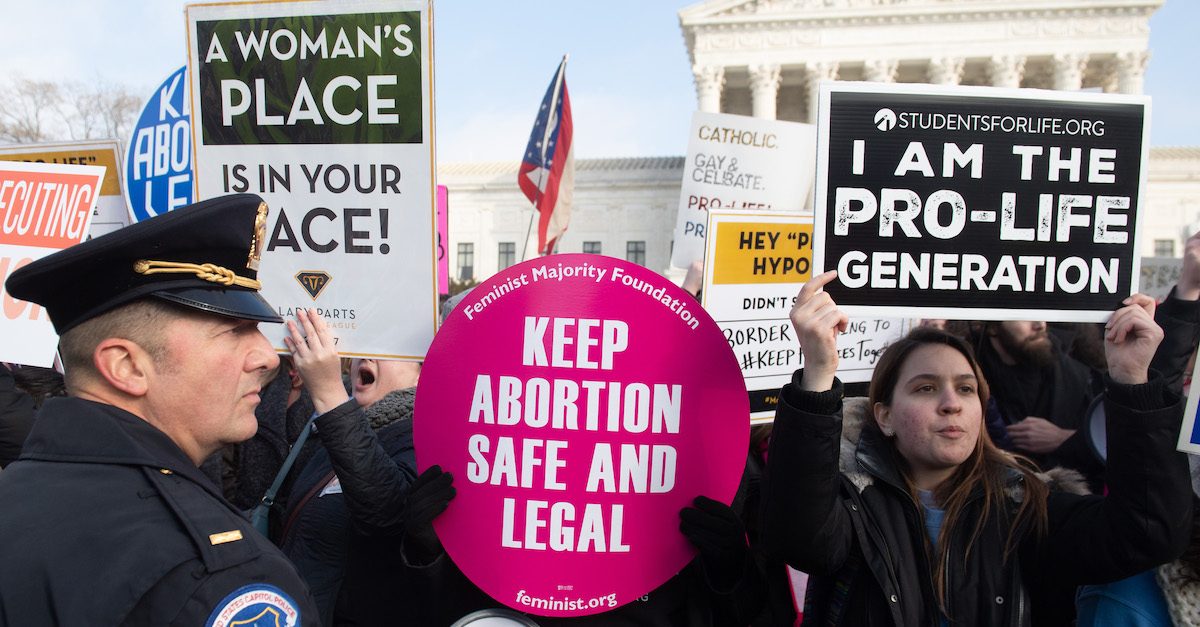
A federal appeals court on Tuesday struck down a Texas law that would have banned the safest and most common type of abortion procedure used in the second trimester of pregnancy.
A three-judge panel on the U.S. Court of Appeals for the Fifth Circuit – one of the most conservative federal appellate courts in the nation – reasoned that Texas Senate Bill 8 (SB8) “unduly burdens a woman’s constitutionally-protected right to obtain a previability abortion,” in violation of the Fourteenth Amendment right to due process.
Under SB8, physicians were prohibited from performing a “dilation and evacuation,” or D&E, procedure where fetal tissue is removed through the cervix, unless doctors first induced “fetal demise” which would require an intrusive additional that physicians say is medically unnecessary.
A coalition of reproductive rights groups and abortion clinics sued the state and in 2017 were victorious at the at the district court level. U.S. District Judge Lee Yeakel, an appointee of George W. Bush, held it was unconstitutional for the state to force women to undergo “unwanted, risky, invasive and experimental procedure in exchange for exercising her right to choose an abortion.”
In a 2-1 decision penned by Circuit Judge James Dennis and joined by Circuit Judge Carl Stewart, both appointed by Bill Clinton, the court affirmed Yeakel’s ruling.
“SB8 compels all women seeking a D&E abortion during this gestational period to undergo an additional and otherwise unnecessary procedure to induce fetal demise. The procedures are dangerous, painful, invasive, and potentially experimental. And they expose all women to heightened risks of adverse health consequences, while offering no corresponding health benefit,” Dennis wrote. “Taken together, these burdens are substantial, exceed any minimal benefits from the law, and thus are undue. And because SB8 would subject all women seeking a D&E abortion after 15 weeks LMP to these undue burdens, SB8 operates as a substantial obstacle in a large fraction of cases in which it is relevant.”
Circuit Judge Don Willett, an appointee of President Donald Trump, dissented from the decision.
The court also rejected the State’s argument that SB8, which also requires fetal and embryonic tissue to be buried or cremated, did not constitute an “undue burden” because there are several “alternative methods” that can be used to cause fetal demise.
“Before examining the district court’s findings on the State’s proffered methods of fetal demise, we observe that there is a ‘fundamental flaw’ in the State’s description of these procedures as ‘alternatives,’” the opinion stated. “’Fetal-demise procedures are not, by definition, alternative procedures,’ because a patient who endures such a procedure ‘must still undergo the entirety of a standard D&E. Instead, fetal-demise procedures are additional procedures. Additional procedures, by nature, expose patients to additional risks and burdens. No party argues that these procedures are necessary or provide any medical benefit to the patient.’”
The state also argued it had an interest in “preventing fetal pain,” but the court found “little merit in this argument.”
“Major medical organizations, including the American Medical Association, the American College of Obstetricians and Gynecologists, and the Royal College of Obstetricians and Gynecologists, have concluded that fetal pain is not even possible before at least 24 weeks [from last menstrual period],” the court said.
Read the full decision below:
5th Circuit Abortion Decision by Law&Crime on Scribd
[image via SAUL LOEB/AFP/Getty Images]